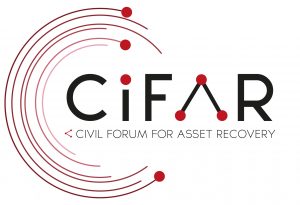CiFAR and the International State Crime Initiative
Kleptocracy and Asset Recovery: The Role of Destination Countries
Cross-border corruption is a multi-billion dollar a year challenge to democratic norms and to transparent and accountable governance. Corruption cements the power base of authoritarian regimes, using financial jurisdictions in regions such as the UK, US and Switzerland to store ill-gotten wealth. This syphons off badly needed revenues from jurisdictions facing extreme poverty challenges and associated forms of insecurity.
Over the past ten years, there has been an explosion of cross-border asset recovery cases, including the post-Arab Spring and post-Ukraine revolution cases, the Malaysian 1MDB case, Moldova’s Billion Dollar Bank Fraud, the Odebrecht cases across Latin America, the ongoing Abacha returns to Nigeria, the Karimova case in Uzbekistan, and Kazakhstan I and II. Additionally, and largely in response, there have also been a multitude of changes in how states act to prevent cross-border corruption and recover stolen assets. These include changes in beneficial ownership transparency, the targeting of enablers, the introduction of reconciliation agreements and unexplained wealth orders, the expansion of anti-corruption sanctions, and many others. They also include several new models for returning stolen assets.
These measures – largely in or driven by countries of the Global North under growing international pressure – have been diverse and not without criticism, and in some cases have been experimental in form. Whether and how they work, their application on a broader scale, and who they work for, are all important questions. Equally as interesting are whether new methods and new ideas can be developed to overcome challenges that still exist or have been further created by these new methods.
This online conference in January 2022 brought together a global community of academics, civil society actors, researchers, journalists and policymakers to discuss trends in policy around cross-border corruption prevention and asset recovery, with a focus in this instance on the role of the Global North.
Agenda
Session 1 – Models of Asset Return
- A Human Rights Perspective on Asset Recovery, Dr Cecily Rose, Leiden University.
- Towards a French Model of Asset Return? Sara Brimbeuf & Rahima Zitoumbi , TI France
- A Case for a New Model for Repatriating Recovered Assets to Original Owners, Dr. Simeon. A. Igbinedion, University of Lagos
Session 2 – Democratising Asset Return
- Recasting ‘Accountability’: Responsible Asset Restitution by Empowering Non-State Actors, Katherine D Wilkins, Hertie School Berlin
- The Role of Civil Society Organisations in Asset Recovery in Zimbabwe and Beyond, Dr Prosper S. Maguchu, Vrije University
- Rights of Crime Victims to Recovered Property in the Polish legal order – Present State and Challenges for the Future, Dr Ariadna H. Ochnio, Polish Academy of Science
Session 3 -Winning or a Broken System? Global AML Regimes and Asset Recovery
- The Rise of Emerging Destination Countries and What it Means for Global Asset Recovery Advocacy, Vaclav Prusaand Samuel Asimi, CISLAC Nigeria
- Tracking Beneficial Ownership and the Proceeds of Corruption: Nigerian-Owned Assets in the UK, Professors Jackie Harvey, Sue Turner and Tony Ward, Northumbria University.
- Snowballs in Hell: The Challenge of Identifying, Seizing and Returning a Kleptocrat’s Loot, Professor Kristian Lasslett, Ulster University
- Criminality Notwithstanding: The Use of Unexplained Wealth Orders in Anti-Corruption Cases, Tom Mayne, Exeter University
Session 1: Models of Asset Return
Session 2: Democratising Asset Return
Session 3: Winning or a Broken System? Global AML Regimes and Asset Recovery


